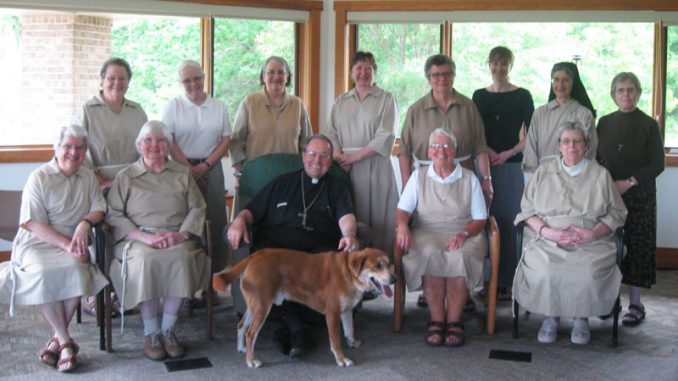
CHARLESTON—A special collection to help retired religious will be held in the Diocese of Charleston on Dec. 12-13.
Coordinated by the National Religious Retirement Office at the U.S. Conference of Catholic Bishops, the appeal assists hundreds of religious order communities in providing for the ongoing needs of their aging Catholic sisters, brothers, and religious order priests.
Last year, the Diocese of Charleston donated $168,524.99 to the collection.
The U.S. bishops initiated the collection in 1988 to address the significant lack of retirement funding among U.S. religious orders. Distinct from retired priest collections, this annual effort benefits eligible religious orders to help underwrite retirement and health-care expenses for nearly 30,000 elderly religious.
The 2019 appeal raised $26.2 million, and this past June, the NRRO distributed $25 million in financial assistance to 341 religious communities across the nation.
Traditionally, sisters, brothers, and religious order priests serve for small stipends that do not include retirement benefits, which results in many communities lacking adequate retirement savings.
These men and women religious typically work as long as their stamina allows, and even after retiring continue to serve in ministry to others in a volunteer capacity until they are physically unable.
In the Diocese of Charleston, orders such as the monks of Mepkin Abbey in Moncks Corner and the Monastery of St. Clare in Travelers Rest use the fund to help provide the skilled medical care their brothers and sisters may need.

These and other beneficiary religious order communities combine the retirement funding with their own income and savings to help furnish day-to-day necessities such as medication. The distributions may be applied toward immediate retirement needs or invested for future eldercare expenses.
“We are humbled and incredibly grateful for the ongoing generosity of the Catholic faithful to the annual appeal,” said Sister Stephanie Still, with the Sisters of the Presentation of the Blessed Virgin Mary and the NRRO’s executive director. “And we are committed to ensuring the broadest and most beneficial use of these donations.”
The retirement-funding deficit is rooted in low salaries and changing demographics. Traditionally, Catholic sisters, brothers and religious order priests — often known collectively as “women and men religious” — engaged in ministry for little to no pay. As a result, many of their religious communities lack adequate retirement savings. Elderly religious are also living longer and, according to NRRO data, outnumber younger, wage-earning religious by nearly three to one.
Like many other Americans, religious communities struggle with the ever-rising cost of health care. The total cost of care for religious past age 70 exceeds $1 billion annually. COVID-19 has compounded this already difficult situation.
Through the annual collection, the NRRO helps religious communities address their funding deficits. In addition to direct financial aid, donations make possible resources and services that assist communities in evaluating and preparing for long-term retirement needs.
“Our mission is sustained by the love and generosity of all who support senior religious and their communities,” said Sister Still.
Visit www.retiredreligious.org to learn more.


